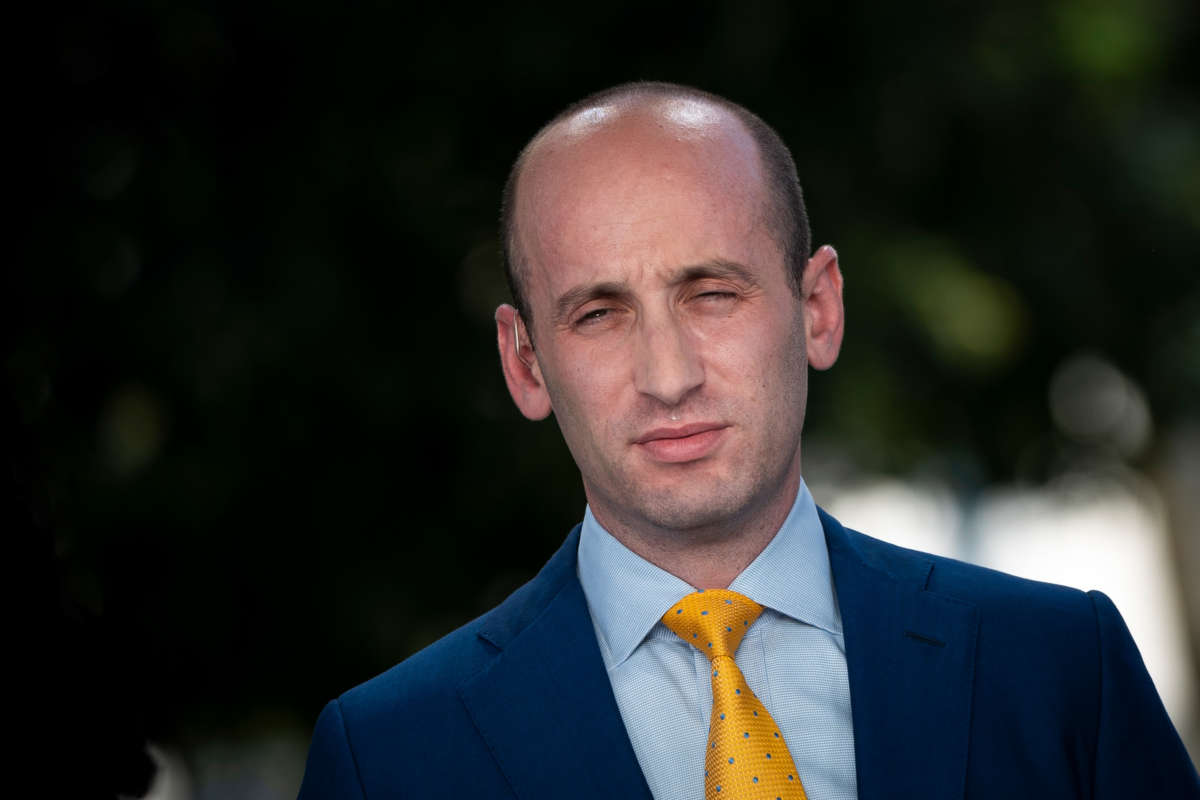On Monday, electors across the country participated in the Electoral College, the official mechanism for choosing the next president of the United States. But while the official voting was taking place, a group of Republicans supportive of President Donald Trump’s false claims of election fraud took part in an “alternate” version of the Electoral College, which is apparently supported by the White House itself.
Appearing on Fox News on Monday, Trump’s senior adviser Stephen Miller explained that the separate group of individuals in a number of states the president’s campaign has contested would be putting forward their own votes, contradicting President-elect Joe Biden’s indisputable victory in states like Wisconsin, Georgia, Pennsylvania and Michigan.
Miller asserted, wrongly, that the move fits with the rules of the U.S. Constitution.
“The only date in the Constitution is January 20,” Miller said on the program. “So we have more than enough time to right the wrong of this fraudulent election result and certify Donald Trump as the winner of the election.”
While electors cast their votes for president, “an alternate slate of electors in contested states is going to vote and we’re going to send those results up to Congress,” Miller went on to say. “This will ensure that all of our legal remedies remain open. That means if we win these cases in the courts, that we can direct that the alternate slate of electors be certified.”
Stephen Miller on Fox & Friends says "an alternative" group of electors is also voting today:
"As we speak, an alternate slate of electors in the contested states is going to vote and we are going to send those results to Congress."pic.twitter.com/5kIkfsbOFw
— Travis Akers (@travisakers) December 14, 2020
Miller’s assertions, however, do not comport with the laws or Constitution of the United States.
There is no provision in the Constitution, nor within the federal legal code and state electoral processes, that allows for an “alternate” slate of electors to be used in the Electoral College to vote for a candidate for president, in the event of a court challenge.
Article II of the U.S. Constitution states that “Congress may determine the time of choosing the electors, and the day on which they shall give their votes; which day shall be the same throughout the United States.” According to U.S. Code, that date has been set to be “on the first Monday after the second Wednesday in December” — which, in this year’s presidential election, was Monday, December 14.
Beyond that, well before the January 20 date Miller cited, the certification of the Electoral College votes by Congress occurs on January 6. While it’s true that the certification can be objected to, rejecting one or multiple electors’ votes requires approval from both houses of Congress to happen.
Some lawmakers have indicated their intent to object to the official Electoral College tally next month. However, given that the House of Representatives is controlled by the Democratic Party (and that Senate control is not yet determined), it would be very unlikely that such objections would be effective.
Most election experts have noted that the scheme Miller discussed on Monday morning would not hold up under the current interpretation of U.S. law, nor under state laws where the “alternate” votes are happening.
“They have no authority if they’re just saying they’re self-appointed, and even if they were appointed by the legislature, it’s too late,” contested elections expert Ned Foley, law professor at Ohio State University, said in an interview with Vice. “You’d have to get some authority under state law beforehand for these electors to matter.”
None of the “alternate” groups of electors received such authority.
Join us in defending the truth before it’s too late
The future of independent journalism is uncertain, and the consequences of losing it are too grave to ignore. To ensure Truthout remains safe, strong, and free, we need to raise $46,000 in the next 7 days. Every dollar raised goes directly toward the costs of producing news you can trust.
Please give what you can — because by supporting us with a tax-deductible donation, you’re not just preserving a source of news, you’re helping to safeguard what’s left of our democracy.
